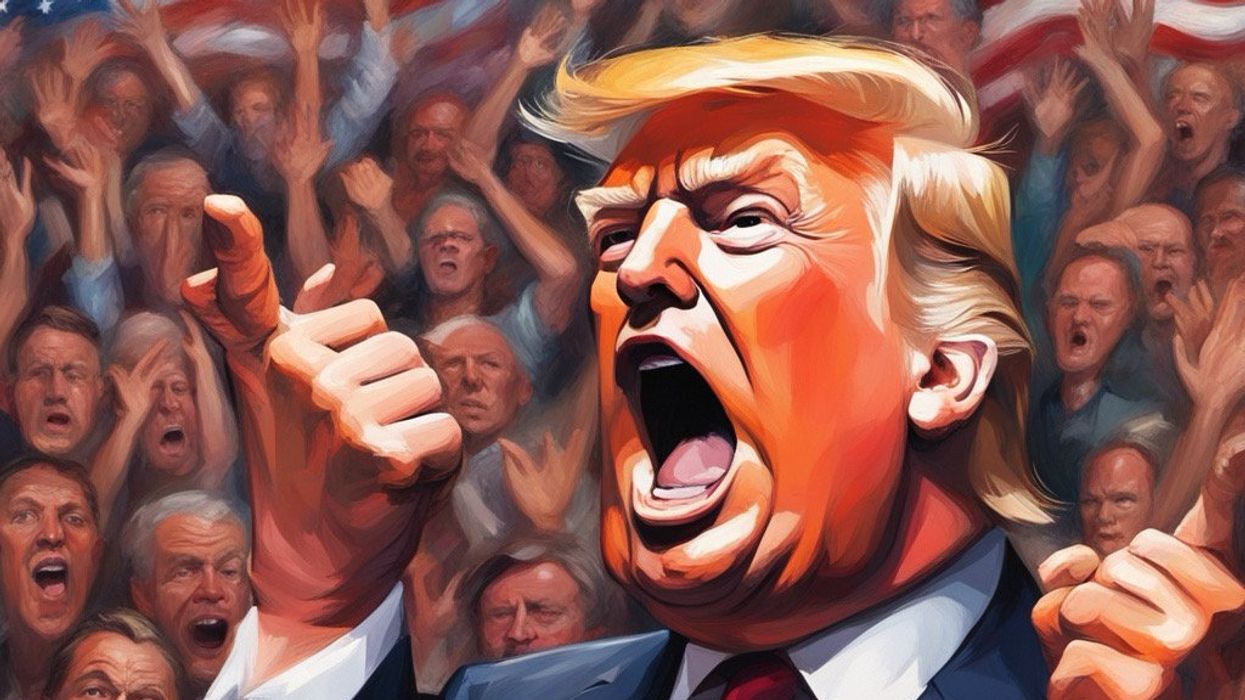As the legal battle over President Donald Trump's deployment of the California National Guard in Los Angeles continues today in a federal appeals court in San Francisco. And a weekend that saw millions of people turn out in cities nationwide for the 'No Kings' protest, including many immigrant rights supporters, Trump is doubling down on expanding deportations.
In a post on Truth Social on Sunday, Trump called on federal agencies, "ICE Officers are herewith ordered, by notice of this TRUTH, to do all in their power to achieve the very important goal of delivering the single largest Mass Deportation Program in History.
And which states did the president target in his tirade? Los Angeles, Chicago, and New York - sanctuary cities he called, "the core of the Democrat Power Center, where they use Illegal Aliens to expand their Voter Base, cheat in Elections, and grow the Welfare State, robbing good paying Jobs and Benefits from Hardworking American Citizens," he rants."These Radical Left Democrats are sick of mind, hate our Country, and..." I'll spare you the rest, but it's nothing we haven't heard before. Trump has been playing that tune since coming down the elevator at Trump Tower in New York City in 2015.
What does the "largest Mass Deportation Program in History" look like? According to Stephen Miller, the White House deputy chief of staff and main architect of Trump's immigration policies, it is at least 3,000 arrests a day, up from about 650 a day during the first five months of Trump's second term.
So, it's about meeting quotas, and not about targeting violent criminals.
Trump has called himself "the president of law and order." Which, as I understand it, he enforces the laws of the land. Ensures that the rules and regulations established by the government are obeyed and followed by all. Right?
But it was just last week that Trump posted on Truth Social that he heard from the hotel, agriculture, and leisure industries that his “very aggressive policy on immigration is taking very good, long-time workers away from them” and promised that changes would be made.
CNN reports that Tatum King, an official with ICE’s Homeland Security Investigations unit, wrote to regional leaders that same day, telling them to halt investigations of the agriculture industry, including meatpackers, as well as of restaurants and hotels.
The president is juggling a highly combustible combination of political pressures and policy problems, as the White House’s efforts to ramp up deportations spark anger from GOP allies, farmers, and ranchers in the nation’s agricultural areas, which overwhelmingly voted for Trump and yet heavily rely on foreign workers for their food supply, reports Politico.
So, Trump is "the president of law and order" on illegal immigration when it is in his political interest, which is, of course, why he's targeting sanctuary cities, and toning it down in rural areas.
California Governor Gavin Newsom responded to Trump's threats to send federal immigration agents to sanctuary cities via X: "His plan is clear: Incite violence and chaos in blue states, have an excuse to militarize our cities, demonize his opponents, keep breaking the law and consolidate power. It's illegal and we will not let it stand."
Illinois Gov. J.B. Pritzker called the idea “ill-conceived.” NBC Chicago reports Pritzker said, “We do know ICE is coming once again in force to cities across the country, so we expect to see them in Chicago. I don’t know exactly how big the force will be, but I do know he has used other law enforcement along with ICE to carry out his ill-conceived mission to go after people who frankly are paying taxes and they’re law-abiding and they’ve been here for many, many years."
Despite assertions from the Trump administration, enforcement actions haven't primarily targeted individuals with criminal backgrounds. Data from NBC News reveals that among the over 51,000 migrants in ICE detention, fewer than 30% have criminal convictions. In February, nearly half of those deported by the U.S. had no criminal charges or convictions, and more than half of the individuals currently held in the U.S. are also without any charges or convictions.
Being in the United States without legal status is a civil infraction, not a criminal one, according to the American Immigration Council.
Trump's approval rating on immigration is plunging, polling shows. Newsweek reports that pollster G Elliott Morris' tracker shows that Trump's net approval rating on immigration has fallen by almost 7 points since June 8, when it stood at +5.4 points. It now stands at -1.3 points. This represents the fastest decline in his rating since the dip after press coverage of Kilmar Abrego Garcia peaked in April.
The president credits his return to the White House mainly to his promises to curb illegal immigration. However, internal tensions between business-oriented Republicans and immigration hardliners, who aim to target all undocumented immigrants, could jeopardize his position and the GOP's chances in the midterm elections.
Hugo Balta is the executive editor of the Fulcrum and the publisher of the Latino News Network.




















Trump & Hegseth gave Mark Kelly a huge 2028 gift